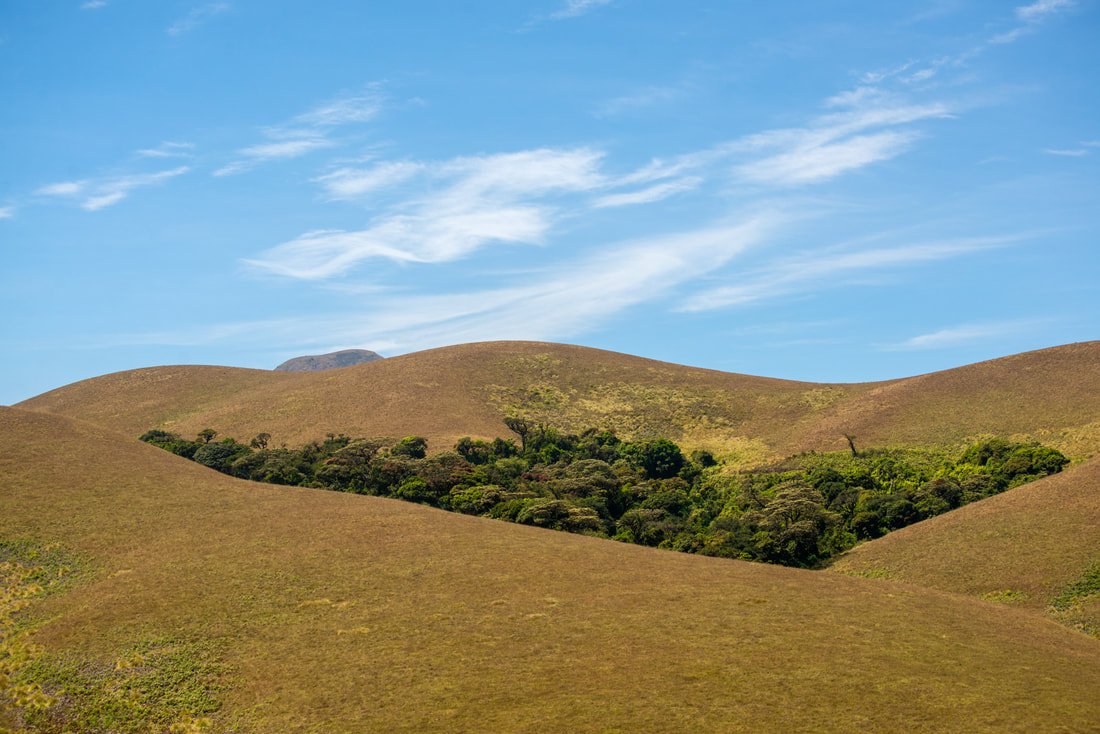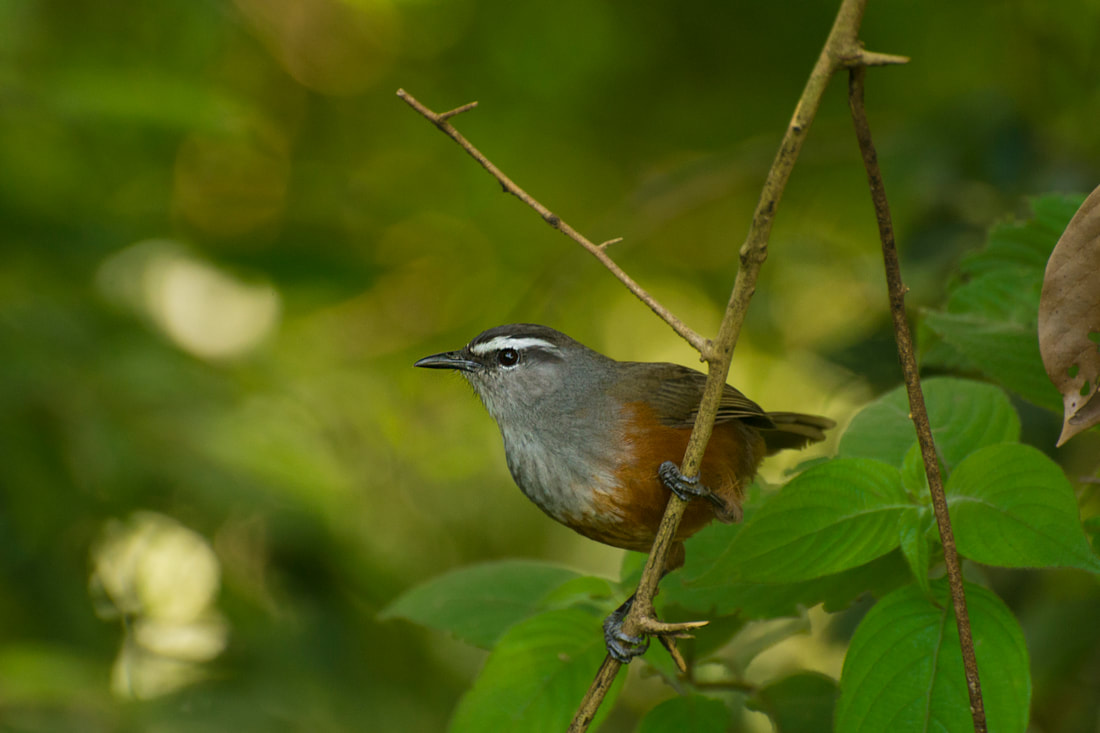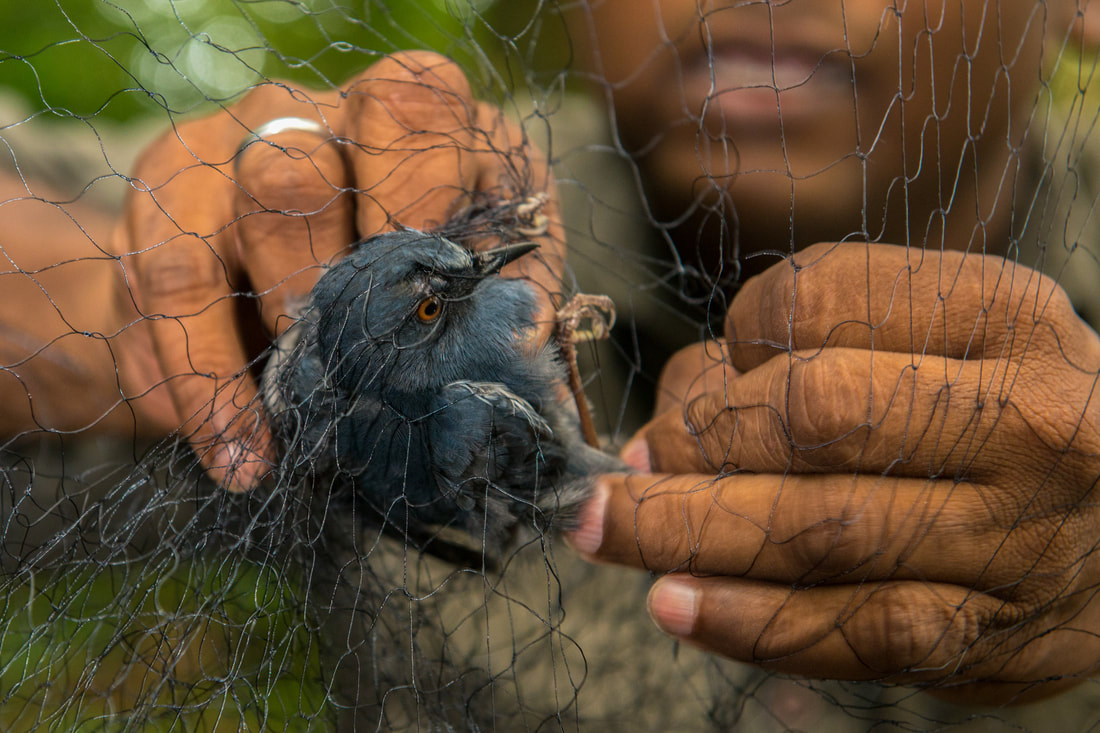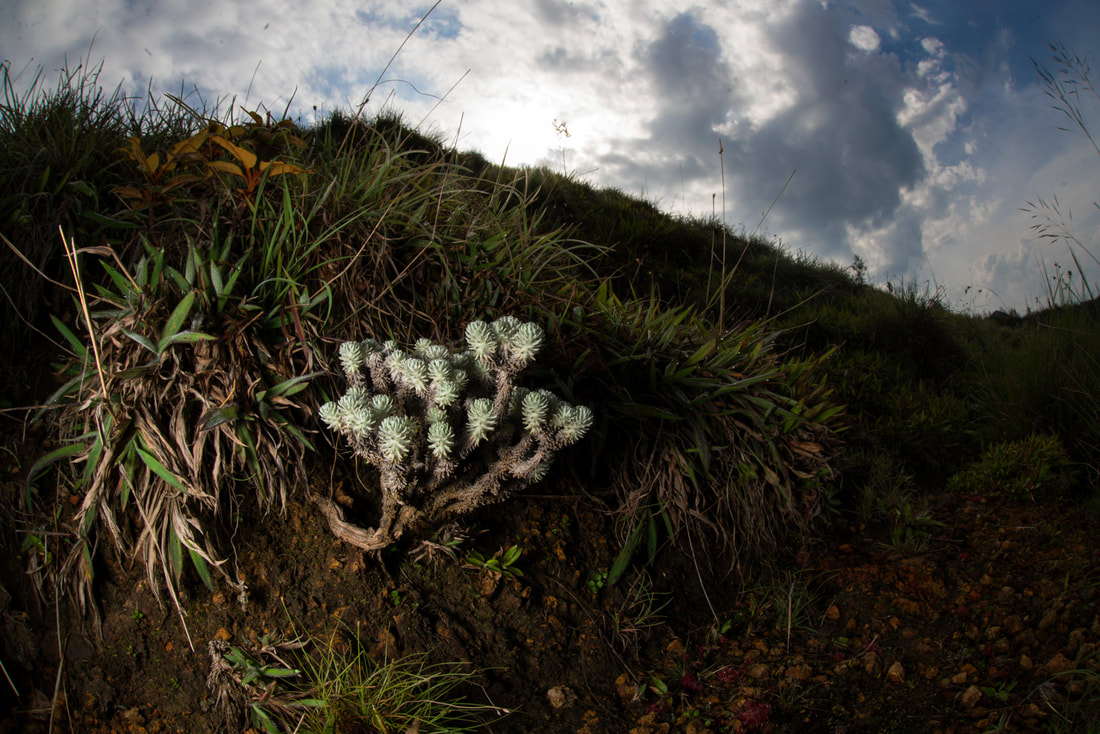Landscape mappingShola Sky Islands are constantly changing due to anthropogenic impacts and invasion of exotic plants. In this project, we use high-resolution satellite imageries and map the locations of change to create a baseline for the future, to understand ecological predictors of such landscape change and to plan restoration efforts.
|
Sky Island BirdsDifferent bird species respond to various landscape features depending on their level of habitat specialization. We examine response of forest birds to various vegetation and landscape features across the Shola habitat. We should be able to understand species-specific responses, thus providing insights into landscape connectivity patterns and plan conservation efforts
|
Avian malariaThe Sky Islands in the colonial times were places where people would go to get away from malaria, especially due to the absence of mosquitoes. However, there are reports of mosquitoes and the incidence of avian malaria today. This infection may depend on the increase in vectors including mosquitoes, which in turn may relate to landscape features including increasing anthropogenic impacts.
|
LONG TERM ECOLOGICAL OBSERVATORIES FOR CLIMATE CHANGE (LTEO)Climate change is being increasingly recognised to impact not just the biodiversity on earth, but also the sustenance of human populations. As part of India’s response to global climate change, the Ministry of Environment and Forests announced the Long Term Ecological Observatories as a national initiative. This project, to collect data on different aspects of climate and biodiversity over five years is being implemented through a network of government and non-governmental institutions.
|




